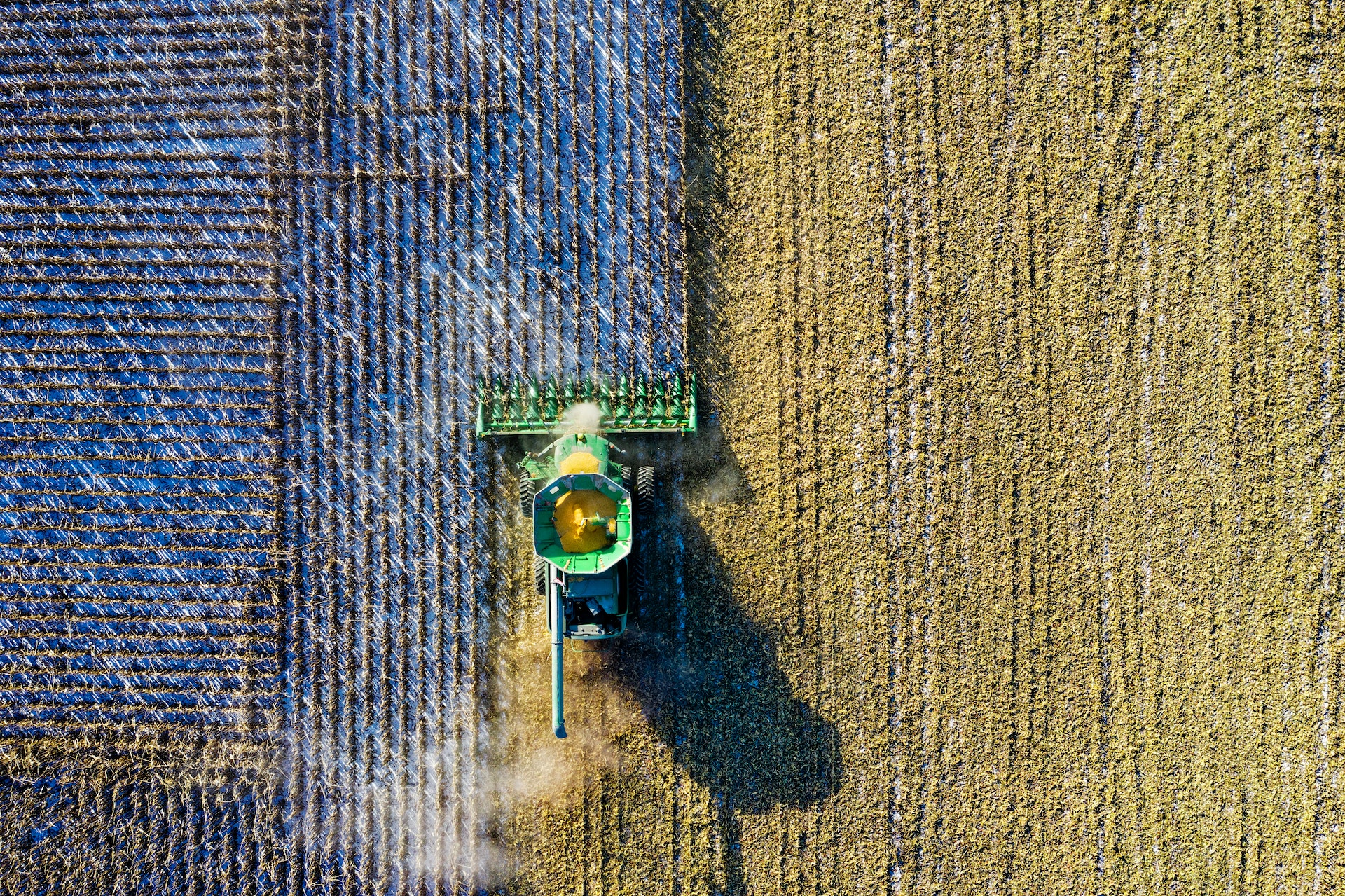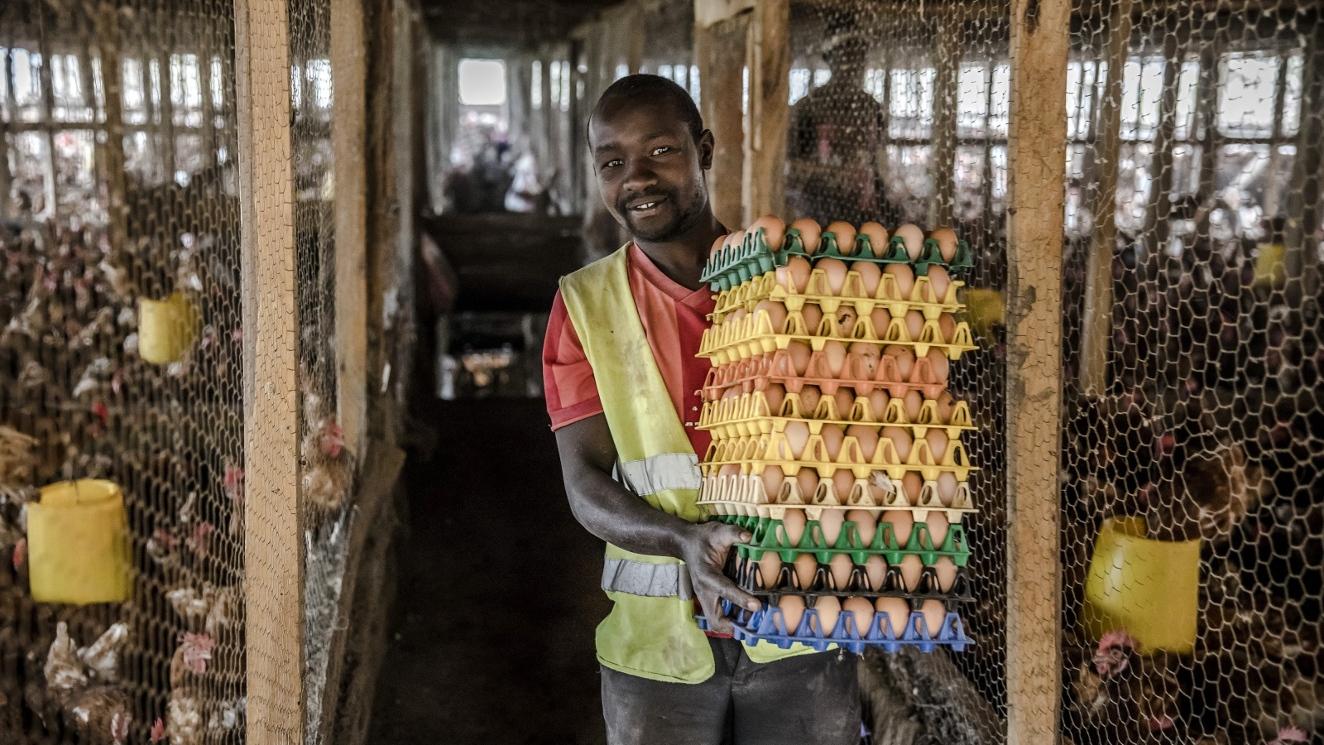Small hold farmers and youth engagement in agriculture across Africa can play a key role in ending food insecurity on the continent but only if supported with modern and environmentally friendly techniques, writes Raphael Obonyo.
According to an International Fund for Agricultural Development study, small-scale farmers in Sub-Saharan Africa provide up to 80 per cent of the food produced in Africa. Most of the world’s smallholder farmers are in Africa and Asia and they produce up to 80 per cent of the food consumed locally, making it vital that they are properly supported.
The report by Alliance for a Green Revolution in Africa (AGRA), an institution that works to improve the well-being of Africa’s smallholder farmers, details how helping the farmers to become more productive and resilient will help build equitable, sustainable and nutritious food systems in Africa, so long as they boost their yields by using the latest agronomic practice. Africa boasts almost 60 per cent of the world’s uncultivated arable land, developing this using sustainable practices will be vital for both food security and the environment.
The President of the African Development Bank, Dr Akinwumi Adesina has said transforming smallholder farms into productive and profitable businesses is key to the fight against food insecurity.
“What we must do is to make sure that smallholder farmers are provided with the support systems that they need…they need access to finance, information, markets, the best technologies in the world (including mechanisation), and rural infrastructure to transform the rural economy,” Adesina said.
Improving outcomes
Recent studies by the Africa Development Bank reveal that there is an increase in the severity of food insecurity in Africa. Around 278 million Africans face hunger. Small hold farmers in Africa have immense potential to alleviate the need. To do so, farmers need to adopt new ways of farming and embrace technology, luckily, support is growing with several exciting projects across the continent.
In Nigeria, a tech start-up, Thrive Agric is helping farmers to access technology, products and services including seeds, machinery providers, and markets. This has increased their ability to meet supply and improved the quality, safety and standard of their food enabling them to sell more in local and international markets. Between June 2020 and December 2020, Thrive Agric helped farmers produce 6,400 metric tonnes of high-quality grains from 11,250 farms in Adamawa State of Nigeria, exceeding the targets they had set. The premium prices attached to the crops allowed farmers to increase their income by up to 25 per cent.
In 2020, Thrive Agric partnered with the Central Bank of Nigeria to support over 25,000 farmers cultivating over 25,000 hectares of maize farmland across Nigeria, with the goal of producing over 20 million metric tonnes of maize.
TechnoServe is a non-profit organisation that implements business solutions to fight poverty. It is helping companies identify and invest in climate-smart, inclusive business models. In Kenya and Ethiopia, TechnoServe is partnering with Nespresso to help nearly 70,000 coffee-farming households to improve their livelihoods through regenerative business practices. Farmers are now able to grow higher quality environmentally friendly coffee that they sell at better prices.
In Malawi, the Self Help Africa organisation that supports rural communities on the continent is helping farmers to adopt new technologies to make farming more efficient. The organisation has enabled small hold farmers to access knowledge, technology and training on modern farming technologies and resources to enable them to farm in a more effective manner, strengthen their own resilience, and increase income.
Youth cultivation
In Africa, there are almost 420 million people between the ages of 15 and 35 years. By 2050, the continent is expected to double its population, from 1 billion to nearly 2.4 billion, with half of that population expected to be less than 25 years old. Today, young people constitute 60 per cent of Africa’s unemployed population.
In addition to supporting stallholders, governments must encourage young people to embrace agriculture. In most sub-Saharan countries, agriculture is a key sector and will play an important role in job creation in the coming years, a very important consideration given the vast numbers that will be entering the labour force in the coming years.
African governments should adopt policies that encourage capacity-building for those entering the agriculture industry through the provision of property rights, technology and opportunities for value addition.
The Centre for Agriculture and Bioscience International (CABI) is an example of how agriculture can be revolutionised through youth engagement. The organisation is running projects that have enabled young people in Uganda and Tanzania to engage with profitable value chains with minimal capital. CABI’s support to young people includes helping them with market access. Other programmes help with pest management, fertilizer, water, energy, seeds, and knowledge. technology and land management. The initiative has equipped young people with skills to enable them to provide services up and down the agricultural value chains.
As part of efforts to make agriculture more attractive to its growing population, Kenya has launched a youth and agribusiness strategy. The strategy placed technology at the centre of agriculture as a means of motivating people to engage in the sector and is a model that can be replicated in other countries.
Recognising the important role of young people as agents of change in the food system, the Food and Agriculture Organization of the United Nations, and the African Union Commission, have developed guidelines on how to design, implement and invest in youth-focused and youth-sensitive programmes.
The guidelines propose several ways to invest and engage people in transforming food systems including through the expansion of automation, digital technologies and emphasising the green economy. Most importantly, the brief emphasises how young people bring new ideas, solutions, and networks that are essential to make local and international food systems sustainable.
To get young people involved in agriculture, it must be attractive and economically viable. More investment should be put in education and skills development to improve access to information and technical assistance. Reforms to land finance must bring young people on board as beneficiaries, partners, and experts.
Africa’s youth are the drivers of change in their communities, organisations, and countries. They can contribute immensely to, and benefit from, the agricultural sector and lift themselves and others out of poverty and hunger, and to do so in a sustainable way, but only if they are given the tools to thrive.
Photo credit: karlitos sader via Pexels






Very good incites from the article.
Agriculture is the backbone of Kenya’s economy and about 80% of farmers in Kenya are small holder farmers, therefore there’s need for support from the government to invest in the agricultural sector in terms of market linkages, subsidized farm inputs like fertilizer to encourage production, offer extension services and financial support.
Such measures put in place would act as incentives for the youth to venture in to the agricultural sector.
The full potential of agriculture is yet to be realized but the trajectory is promising.